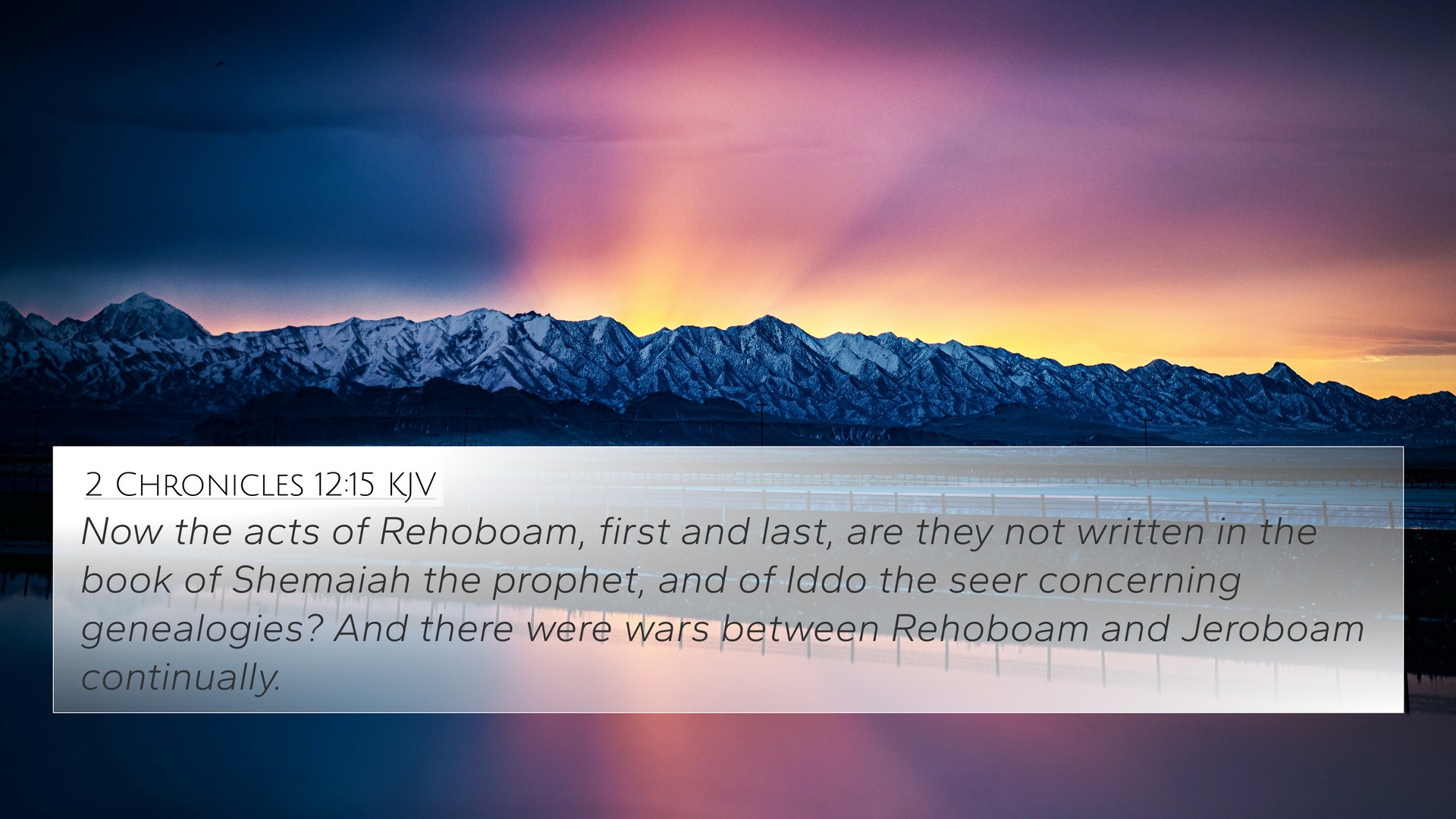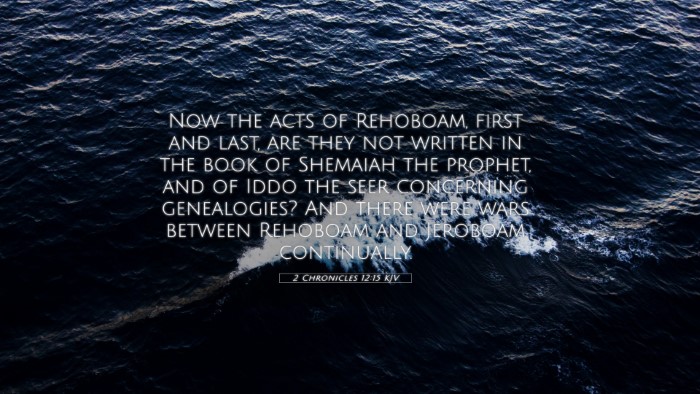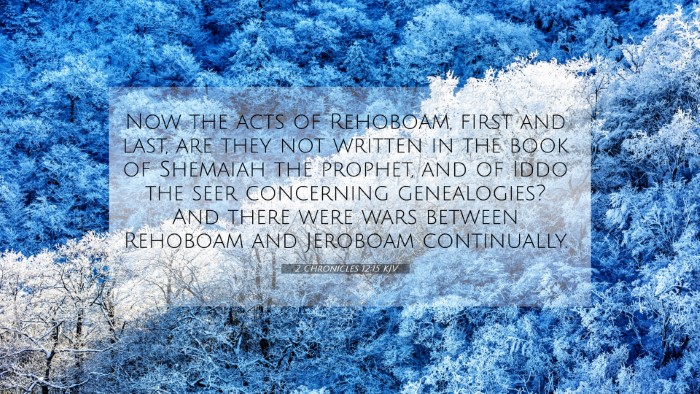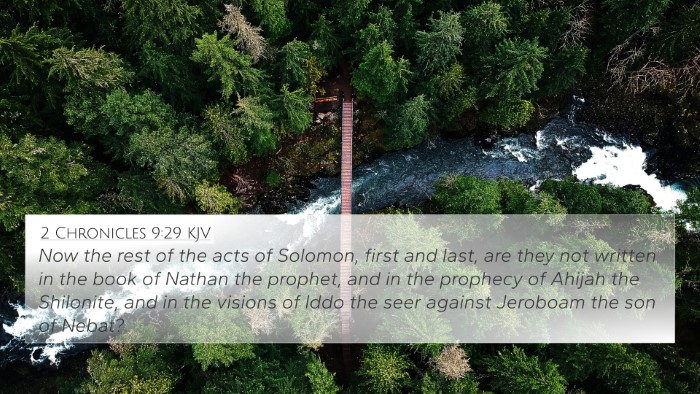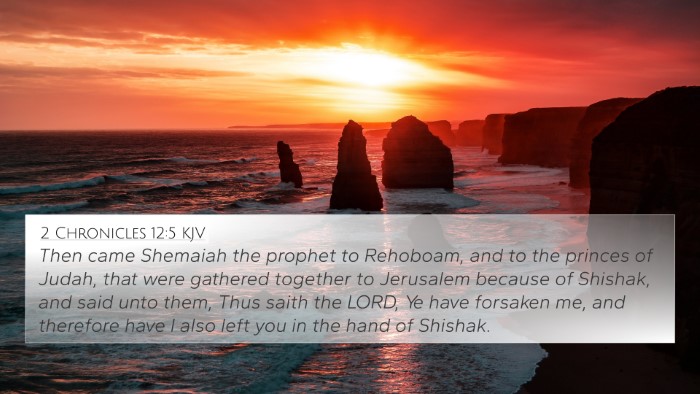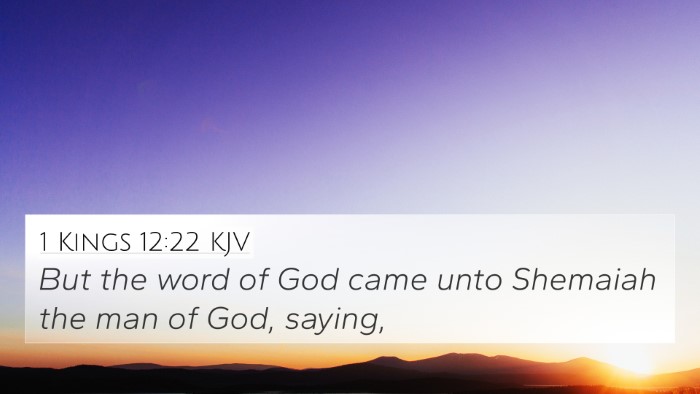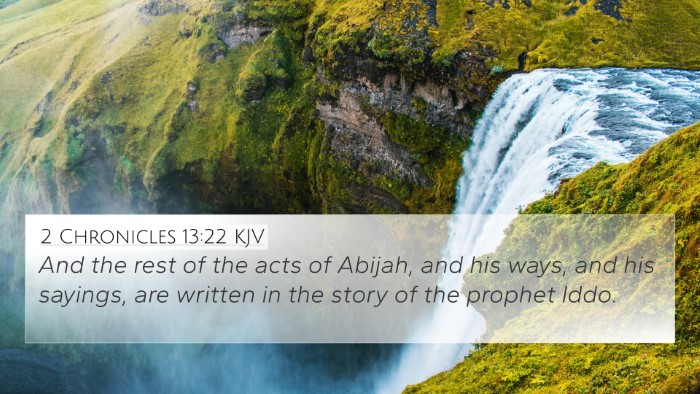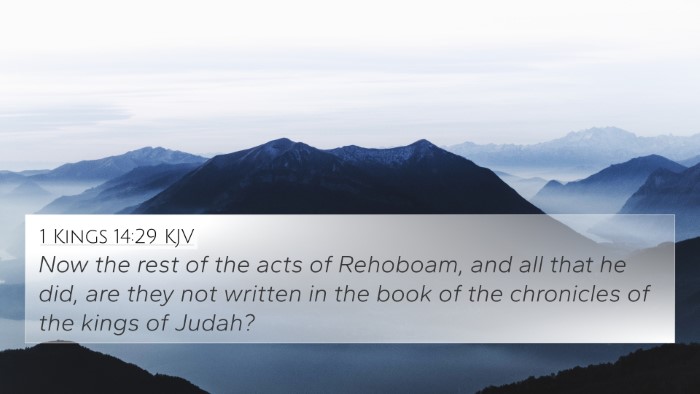Understanding 2 Chronicles 12:15
Bible Verse: “Now the rest of the acts of Rehoboam, first and last, are they not written in the book of Shemaiah the prophet, and of Iddo the seer concerning genealogies? And there were wars between Rehoboam and Jeroboam continually.” - 2 Chronicles 12:15
Summary of 2 Chronicles 12:15
This verse serves as a transitional statement that emphasizes the importance of historical records in understanding the reign of King Rehoboam. The mention of the prophet Shemaiah and the seer Iddo highlights the divine guidance and prophetic insights present during this tumultuous period in Israel's history. The ongoing wars between Rehoboam and Jeroboam reflect the broader context of division and conflict that characterized the monarchy of Israel and Judah.
Commentary Insights
Matthew Henry's Commentary
Matthew Henry underscores the critical nature of divine guidance through the prophets in the affairs of the kings. He notes that the historical records mentioned in this verse provide not only a chronological account but also a spiritual insight into the judgments and direction of God. Henry elaborates on how the continual wars mentioned symbolize the repercussions of national disobedience and the fracturing of the kingdom.
Albert Barnes' Notes
Albert Barnes emphasizes the significance of historical documentation in the biblical narrative. He points out that the "book of Shemaiah" and "Iddo the seer" are crucial for understanding the historical context and the genealogies of the time. Barnes articulates that the conflicts between Rehoboam and Jeroboam serve as a tangible reflection of the divided kingdom and divine displeasure. He suggests that these writings convey a message about the consequences of ignoring God’s guidance.
Adam Clarke’s Commentary
Adam Clarke provides an in-depth analysis of the prophetic and historical significance of the books referenced in this verse. He explains that the prophets were instrumental in conveying God’s messages to kings, especially during times of national strife. Clarke also discusses how the wars between Rehoboam and Jeroboam signify not merely physical battles but also spiritual struggles within a divided nation, showcasing the themes of loyalty, fidelity, and the dire consequences of division.
Connections and Cross-References
Understanding 2 Chronicles 12:15 can be enriched by examining its connections to other scripture passages. Below are some relevant cross-references that illuminate the themes found in this verse:
- 1 Kings 14:21-31 - This passage recounts the reign of Rehoboam and sets the stage for the conflict with Jeroboam.
- 2 Chronicles 10:1-19 - This section details Rehoboam's foolish decision-making and its impact on the division of Israel.
- 2 Chronicles 11:1-12 - Here, the response of Rehoboam to the ten tribes' revolt is described, reflecting the consequences of his leadership.
- 2 Chronicles 13:1-12 - This account illustrates the ongoing conflict between the kingdoms and the repercussions of their choices.
- Jeremiah 3:10 - Highlights the spiritual unfaithfulness that parallels the political division, deepening the understanding of the reasons behind the strife.
- Hosea 8:4 - A prophetic insight into Israel's disobedience and its consequences provides context to the struggles of both kingdoms.
- Amos 1:1 - This verse introduces the prophetic context during the divided monarchy, offering insights into the divine perspective on Israel’s issues.
Thematic Connections
The themes arising from 2 Chronicles 12:15 center on the importance of divine guidance, the role of prophets, and the consequences of disobedience. These themes resonate throughout the Bible and highlight the significance of maintaining spiritual fidelity to God amidst political and social upheaval. Notable examples include:
- Divine Guidance: The role of prophets such as Shemaiah and Iddo illustrates God’s continual communication with His people.
- Historical Records: Importance of documenting the events of leaders' reigns underscores the educational aspect of scripture.
- Conflict and Consequence: The ongoing wars between Rehoboam and Jeroboam symbolize broader themes of apostasy and divine retribution.
Further Study and Resources
To delve deeper into the study of cross-referencing biblical texts and themes related to 2 Chronicles 12:15, consider the following:
- Utilizing a Bible concordance to identify key themes and connections.
- Exploring a cross-reference Bible study guide for thematic exploration and deeper understanding.
- Engaging in cross-referencing Bible study methods to enhance your personal Bible study.
- Looking into comprehensive Bible cross-reference materials available for extensive research.
Conclusion
2 Chronicles 12:15 serves as a significant reference point in understanding the complexities of Rehoboam’s reign and the ensuing conflict with Jeroboam. By examining this verse through the insights of public domain commentaries and its connections to other scriptural passages, one can gain a richer understanding of the theological narratives at play.
For those seeking to enrich their biblical studies, recognizing the biblical cross-references and exploring the interconnections between related verses can provide deeper insight into the themes of leadership, prophecy, and the consequences of disobedience in the context of God's overarching narrative.
